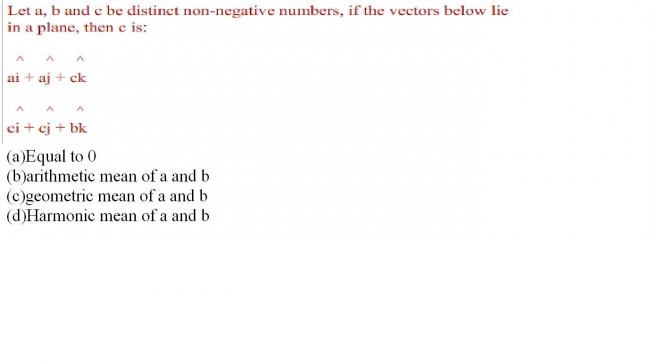c?
14 Answers
Taking cross product,
we get i(ab-c2))-j(ab-c2)+k(ab-c2)
As they lie on same plane,cross product is zero
hence ab=c2
take cross product of two vectos...it will be perpendicular to the plane in whih it lies... then dot product of one of the vector with the perpendicular vector will be 0.... then u can get the required condition(i donno d soln..but this is the method)
hey, batman....i have a doubt
how did u get the cross product as
(ab-c2)i-(ab-c2)j+(ab-c2)k??
(ai+aj+ck) x (ci+cj+bk) = \begin{vmatrix} \hat{i} & \hat{j} & \hat{k}\\ a & a & c\\ c & c & b \end{vmatrix}
= (ab-c2)i - (ab-c2)j
ALSO, CROSS PRODUCT OF TWO VECTORS ON THE SAME PLANE NEED NOT BE EQUAL TO 0...........
IF WE GO BY SRIRAGHAV'S METHOD, WE'LL GET
[(ab-c2)i - (ab-c2)j].(ai+aj+ck) = a(ab-c2)-a(ab-c2)
WHICH IS 0 FOR ALL VALUES OF c.........PLS CLARIFY
MANI!!!!!!!
QUESTION IS TOOO VAGUE ....
ANY TWO VECTORS WILL ALWAYS BE COPLANAR!!!
hmm I think question should have been two vectors are in a line
Then everything would be correct
machan, if the vectors are on the same line, then the angle between them is 0....so sin0 = 0 ..... so cross product is 0 da
yeah dear thats d fact wich we use to find coplanarity
n two vectors r always in d same plane no mattr wat
d question arise wen we hav 3 vectors :P
